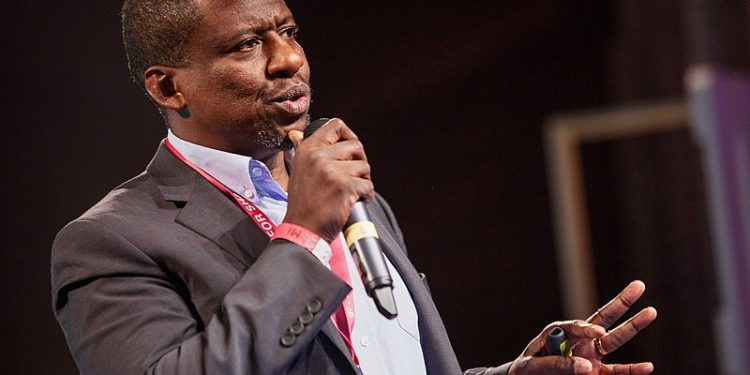How do you sustain significant population growth while adapting to new and modern challenges? How do you build the infrastructure to ensure that the future generations have a chance to flourish? How do you create a space with the resources for young people to build and test their ideas from conception to application?
Luckily for all of us, there are people trying to answer these questions with innovative and technical solutions. One of these people is Dr. Kamau Gachigi, founder and director of the Nairobi-based Gearbox, now the sixth wealthiest city in Africa. Gearbox is Kenya’s first makerspace in which engineers and non-engineers alike can rapidly prototype their ideas. Prior to Gearbox, Gachigi was the head of Nairobi’s Science and Technology Park, co-founder of Africa Innovation Ecosystems Group and a member of the Global Future Council, a subgroup of the World Economic Forum.
TED
In his TED Talk back in December, Gachigi describes his journey when deciding to found Gearbox and why he believes it is a necessary step forward for the next generation of African innovators. He also describes his education and works in technologically advanced countries like the U.K., the U.S. and Japan and how when he returned to the continent, he felt useless as he no longer had access to the technology, and productive capacity he had grown accustomed. He quickly realized he needed to change his approach from academia to more entrepreneurial thinking and began looking for investment to build his prototyping lab.
In the talk, Gachigi begins by telling us that by the year 2050, the population of Africa will have doubled, describing further this as an exciting and daunting time for the continent. It’s exciting because of the possibilities and daunting because African countries will have to develop stronger economies to sustain this growth. Most governments have long-term economic plans in place to deal with it, and all these plans are built around increasing industrialization. The world is currently undergoing a fourth industrial revolution, which according to Gachigi means a synthesis of the physical, cyber and biological sectors taking place.
For context, the original industrial revolution was predicated on the physical only. With increasing automation and artificial intelligence (AI) capability, the odds of a machine doing your job in a few years’ time is becoming more and more likely, and so it’s even more necessary to lay the foundations for future production and industrialization now. Engineers are necessary for effective industrialization to take place. However, Gachigi found that most of the engineering graduates he knew ended up working in banking or accounting to pay bills because there wasn’t space for them to build and test their ideas.
 Photo by Sagoodi / CC0
Photo by Sagoodi / CC0
Caption: Gearbox is providing space for young engineers to test and prototype new ideas.
Success Stories
Of the success stories from this simple notion of providing a well-equipped space for people to develop ideas, there are more than a few available. Gachigi describes a non-engineer woman in her mid-20s named Esther, who brought them a social issue that she was passionate about fixing: that young women were missing school days every month due to their inability to afford the bulk packaging for sanitary and menstrual products. Esther came up with the simple idea of placing sanitary products in individual packaging in vending machines to allow for simpler and more affordable access. Gearbox helped her develop, prototype and pilot the idea, and it has since become a success.
This simple idea, a manufacturing space for innovators run on a paid membership basis where you pay a small amount every month and get taught how to use the machinery, provides the possibility for low-end manufacturing to take place in the country, which is a necessary factor for industrialization. Gachigi tells us of an electrical engineering student called Douglas who was contracted by a company to develop circuit boards for a pay-as-you-go application. Prior to Gearbox, his student would have had to design the product on a computer, then send it to a manufacturer in another country, most likely China. It would then be sent to a smaller company because larger companies wouldn’t take such a small manufacturing order. On top of this, the smaller company might have other orders, possibly of higher value, meaning higher priority, so his order could get bumped down the line. All this would mean that the turnaround time could have been weeks on end. Instead, Douglas went from order to idea, to design and finally, to the production of the circuit boards all within Gearbox, in the country, all within a short span of time. As Gachigi says, this is of significant import and will be a necessary development for the next generation of engineers to drive social and economic growth on the continent.
You can watch the entire TED Talk below.




